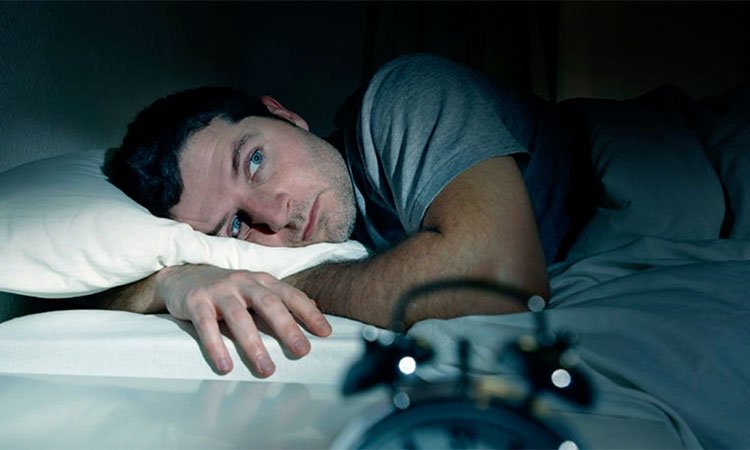One third of our life is spent sleeping. At the age of 60, 20 of them will have slept. It is what we do most, day after day, night after night, as well as sleep, we are affected daily, both at night and during the day, conditioning our lives many times, because sleep functions are important for our organism. SLEEP represents a vital function for being:
- Essential (the human being can not live without sleep).
- Restorer (sleep "repairs" our body every day).
- Complementary and fundamental to ensure wakefulness: we sleep to be awake the next day.
- Physiologically necessary: (regulator of biorhythms and guarantee for the balance between internal biological requirements and the external environment)

Not only does the amount of time we spend sleeping matter, the quality of the sleep is also important. When sleep is interrupted or shortened, we may not have spent enough time in certain stages of sleep. In other words, how well you have rested and how well you function the next day will depend on the total time you have slept and how much of the different stages of the dream you have had.
We need to sleep to think clearly, react quickly and settle our memory. In fact, the brain processes that help us learn and remember are especially active while we sleep.
Skimming sleep has a price. Subtracting just one hour of sleep can make it difficult to concentrate the next day and slow down your response time. Studies also indicate that lack of sleep causes us to make bad decisions and take unnecessary risks. This can lead to poor performance at work or school and increased risk of traffic accidents.
Sleep also affects mood. If we do not sleep enough we will be more irritable and that will affect our behavior and relationships. People with chronic sleep deprivation are more likely to have depression.
Sleeping is important for good health. Studies show that not getting enough sleep or having poor sleep quality increases the risk of hypertension, heart disease and other diseases.
In addition, during sleep, our body produces certain hormones; For example, sleeping deeply triggers greater release of growth hormone. Other types of hormones are released during sleep to help fight infections. That's why sleeping well helps you avoid illnesses and keep you healthy.
Hormones that affect the body's use of energy are also released during sleep. So people who sleep less are more likely to be obese, develop diabetes or prefer high-calorie, high-carbohydrate foods.

The benefits a restful sleep
A good rest involves sleeping the necessary hours (between 7 and 8) and achieve a deep sleep in this period, which is achieved by acquiring certain habits, such as establishing a fixed time of sleep, avoid eating heavy food at night and prefer the Reading before television when going to bed.
Some reasons to sleep well:
- The cells are regenerated and oxygenated. When sleeping, our skin rests and the cells regenerate and oxygenate more easily. Specifically in the eyes, Rhodopsin (light sensitive pigment) manages to renew itself recovering the effort made during the day.
- It helps maintain an adequate weight. When the body does not rest enough, it has a tendency to accumulate fats and it is more difficult to burn them. A rested body helps to maintain weight or even to lose it more easily, because when we sleep little we produce more amount of Ghrelin hormone, which increases appetite.
- It favors the control of diseases such as hypertension and diabetes. When we do not rest enough, we run the risk of increasing our blood pressure, making the likelihood of hypertension and / or diabetes higher due to the increase in Cortisol production.
- Take care of the heart. During sleep, the heart rate also decreases so that the coronary cells and tissues can be repaired. At this time our body releases melatonin and growth hormone to develop these tasks.
- It improves the capacity of intellect. Rest is essential to improve our intellectual activity. The brain needs several hours of disconnection to process all the information accumulated during the day.
- It encourages physical coordination. A psychomotor activity can not be performed if the brain is not rested. If we are going to drive or perform work that involves risks, rest is not only advisable, but essential.

How bad rest manifests
The lack of a restful sleep can affect the organism in different ways, some of which can be perceived more frequently are:
- Difficulty of vision.
- Hypersensitivity to light stimuli.
- Reduction of reading ability and concentration.
- Feeling of constant tiredness.
- Gastric problems.
- Lack of energy.
- Bad mood and irritability.
SOURCE:
https://www.muyinteresante.es/salud/articulo/seis-beneficios-de-dormir-bien
https://www.dormirbien.info/trastornos-del-sueno/la-importancia-de-dormir-bien/
Sleep is so important! Your post is very helpful 😊
Thank you.
Thanks to you!
Seriously I sleep only for about 3hrs a day and am presently feeling like I've punished myself all these while.
Lol
Jaja.. It is important to sleep but I think it also depends on the custom that each person carries.